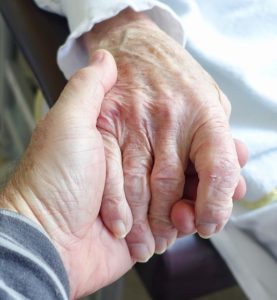Palliative and hospice training bill back on congressional agenda
A bill to fund training programs in palliative care and hospice care has been reintroduced in both the House and the Senate.
The Palliative Care and Hospice Education and Training Act (S 693/ HR 1676) or PCHETA, proposes to:
- Fund programs to provide clinical palliative medicine training in a variety of settings, including hospice
- Establish a program to enable hospice and palliative physicians to train teams of interdisciplinary healthcare professionals in palliative and hospice care techniques
- Expand the types of professionals trained to provide hospice care, including nurses and clinical social workers.
The bill has the support of many groups including the National Hospice and Palliative Care Organization (NHPCO), the Alzheimer’s Association and the Visiting Nurse Associations of America and is part of an overall push to legislate better support of home-based care services.
Working hard now to fund educational programs will help ensure the availability of a well trained end-of-life care workforce later when the numbers of seniors will have ballooned, organizations say.
“[T]he current rates of educating and training medical professionals in palliative care will not be sufficient to ensure aging Americans access to quality palliative care,” notes the National Hospice and Palliative Care Organization (NHPCO) in a support letter to Congress. “A 2017 study by the George Washington University Healthcare Institute estimates that there will be no more than 1 percent growth in the palliative care and hospice physician workforce in the next 20 years, while the number of people eligible for palliative care will increase by over 20 percent. Without a boost for palliative care education and training, there will be only one palliative physician for every 26,000 seriously ill patients by 2030.”

Pamela Tabar was editor-in-chief of I Advance Senior Care from 2013-2018. She has worked as a writer and editor for healthcare business media since 1998, including as News Editor of Healthcare Informatics. She has a master’s degree in journalism from Kent State University and a master’s degree in English from the University of York, England.
Related Articles
Topics: Alzheimer's/Dementia , Executive Leadership , Staffing , Training










